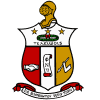Famous Kappas
Kappa Alpha Psi® boasts members who epitomize the Achievement in Every Field of Human Endeavor. Some famous members include: Ralph Abernathy, Wilt Chamberlin, Bill Russell, Gayle Sayers, Kenneth Clark, Mark Lamont Hill, Stan Lathan, Whitman Mayo, Montell Jordan, Benjamin Jealous, Oscar Robertson, Augustus “Gus” Johnson, Jr., Cedric the Entertainer, Arthur Ashe, Mike Tomlin, Gayle Sayers, Adrian Fenty, Hakeem Jeffries, Donald Byrd, Johnnie Cochran, Smokie Norful, John Singleton, Earl Thomas, Tom Bradley, Bob Johnson, Percy Sutton, Calvin Butts, Leon Sullivan, John Conyers, Alcee Hastings, Reginald Lewis, Lerone Bennett Jr., Alex English, Allan Houston, Penny Hardaway, Kwame Jackson, Mark Tatum, Brandon Marshall, Tavis Smiley, Marvin Sapp, and Colin Kaepernick to name a few.
Their accomplishments were and are noteworthy. Moreover, their determination in the face of seemingly insurmountable social and economic odds, is a source of inspiration. To understand their plight, is to understand the birth of college fraternities among blacks.
In 1903, on the Indiana University campus, a club called Alpha Kappa Nu was formed to strengthen the black voice at the University and in the city of Bloomington Indiana. That club didn’t last very long. There is no record of any similar organizations at Indiana University until the chartering of Kappa Alpha Nu in 1911, later to become Kappa Alpha Psi.
